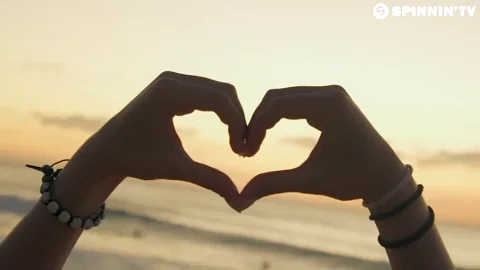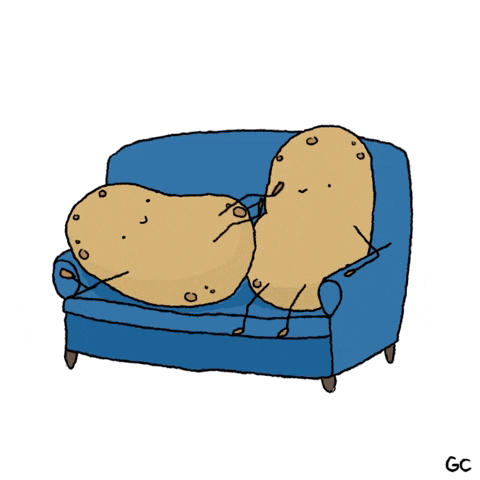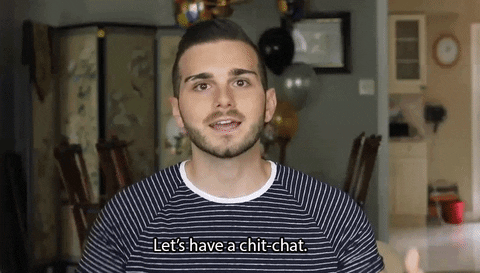- Subscribe to RSS Feed
- Mark Topic as New
- Mark Topic as Read
- Float this Topic for Current User
- Bookmark
- Subscribe
- Mute
- Printer Friendly Page
Romantic and Sexual Relationships: Special Discussion
Let's talk about Romantic and Sexual relationships
Continuing on with the theme of Relationships during November 2019, this discussion will focus on romantic and sexual relationships.
“Relationship” is a broad term and can be used to describe a ton of different human connections! Romantic and sexual relationships also describe a range of different connections, so let’s define them!

What do we mean by Romantic Relationships and Sexual Relationships?
Romantic and sexual relationships are all about closeness or “intimacy”. Romantic closeness relates to the emotional connection you have with someone. If you feel a romantic attraction to someone you might want to talk to them for hours and tell them all your secrets, you might feel comfortable showing this person the full spectrum of your emotions.
Sexual relationships have more to do with physical closeness. It is possible to have just a sexual attraction to someone, or only a romantic attraction. Sometimes when the stars align you get both romantic and sexual attraction in one! It’s also worth mentioning that there are some relationships that aren’t based on either romantic or sexual attraction - that's okay too!
Navigating relationships can be tricky, so this special discussion will focus on a few important topics including:
- What healthy and unhealthy relationships look like
- When a relationship has ups and downs
- Where you can seek support or resources in navigating relationship issues
- Attraction and sex
- Consent and choice
Relationships can be so much broader than the areas we go into in this special discussion, so make sure to have a look at the ReachOut Relationships page for more info!

Comments
I'd just like to remind everyone that if at all you find this conversation distressing or you feel like you need to talk to someone, about an issue then you can call Lifeline on 13 11 14 or Kids Helpline on 1800 55 1800 or use their webchat and email services found on their respective sites. The links can be found here ![]() Relationships Australia can also provide support for relationship concerns
Relationships Australia can also provide support for relationship concerns
PART 1: What do healthy romantic and sexual relationships look like?
When our relationships with those we care about most are healthy and add value to our lives, it can have great impacts on wellbeing, mental health, sense of belonging, sense of meaning and self esteem. Humans are such social creatures, so the connections we have with others can hold purpose in our lives. When our relationships are challenging, it can have a big toll on our wellbeing and everyday life!
Relationships have their ups and downs- that’s a normal part of life! But how do I work out if my relationship is working for me? What do I value in a relationship and why? And what importance do romantic and sexual relationships hold in our lives?

Activity:
1. What do you think makes a healthy relationship different from an unhealthy one? (Can be romantic, sexual, companionate etc)
2. What do you value in a relationship, and why do you think people look for romantic or sexual relationships? Are there benefits?
3. How do you know if you are ready for a relationship?
Relationships are such a big and important part of our lives as human beings and social creatures so love the opportunity to have these discussions!
1. What do you think makes a healthy relationship different from an unhealthy one? (Can be romantic, sexual, companionate etc)
I think what makes a healthy relationship different from an unhealthy one is the ability to be yourself. Whether it's a romantic relationship, friendship, or family member it's so important to feel comfortable sharing your true self with the other person. Some red flags that I've noticed in my own friendships are when my opinion is repeatedly shut down and I feel like I can no longer speak, when I don't want to share things about my life because I'm afraid of the other person's adverse reaction, and when it feels like I'm always doing all of the listening and none of the sharing. As was mentioned, feeling like equals and equally validated is so important.
2. What do you value in a relationship, and why do you think people look for romantic or sexual relationships? Are there benefits?
I think the things I value in a relationship are pretty standard - honesty, trust, the ability to listen without judgment, and compassion. When in a romantic relationship you need to be equals and partners. I think people look for romantic relationships because it feels nice to know there is someone out there you can rely on and share your experiences with. Life is better with someone and, for me, I often search for that someone in romantic relationships, although I also have many incredibly important non-romantic relationships too. It simply feels nice to be intimate and a little bit vulnerable with another human being.
Just sharing some human experiences together. How we humans do.
3. How do you know if you are ready for a relationship?
Good question! I want to say that maybe you never know if you're ready for a relationship until you give it a go? If it feels wrong at the start, or you find yourself wanting to pull away, maybe that means you have to do some more work on yourself before you dive into a romantic commitment .... or maybe that person just isn't a good fit for you. ![]()

I have loved reading these posts this morning!
@Hozzles You mentioned "Emotional boundaries, such as knowing when it's time for some privacy or self-care, can be just as important as physical boundaries, such as sexual and intimate consent". I could not agree with you more about boundaries- super important! When it comes to setting and communicating boundaries to a partner, what advice do you have for those who aren't sure how to start that conversation?
@Sunflower18 Building on Hozzles point about boundaries, you have mentioned a few things that you really value; mutual understanding, non-judgmental communication, and the importance of having together time and alone time. I really resonate with that last one about quality time together, and spending time apart- this is is a really important balance ![]()
@recharging_introvert Being yourself in a relationship is so powerful and reaffirming! Mutuality and equality are both terms that have come up in this discussion. You mentioned "feeling like equals and equally validated is so important." Could not agree more ![]()
You’ve all put it into very good words 😃
I've just pulled some of the key words that have come up so far in this discussion into a word cloud; What things our community value in a healthy relationship

Part 2: Coping with relationship stresses, pressures or challenges
Discussion:
What are some “healthy” relationship challenges?
What are your “deal breakers” (challenges that overstep your boundaries)
What do you think is most important when handling conflict with your partner?

Last week we dipped our toes in the discussion topic of healthy romantic and sexual relationships! This week we want to open up a deeper discussion into how to cope with the stresses, pressures or challenges that you may come up against when in a romantic or sexual relationship.
Romantic and sexual relationships can bring a feeling of joy that is really unique and special. The closeness of these relationships often heighten all our emotions - the good ones and sometimes the uncomfortable ones.
Like any relationship, there are challenges that arise so it helps to have some tools handy to help you cope when things are stressful. There are different kinds of pressures that can add stress to a relationship. Below I’ve made a few dot points but please feel free to add to the list in your comments!
Internal pressures:
- Insecurity/Jealousy
- Difference in culture/age/beliefs
- Unrealistic expectations
External pressures:
- Family and/or friends
- Study/Work commitments
- Money
I tag bombing a bunch of community members for this one! If you are interested in this topic, we would love to hear from you!
@Ladybug @reach804 @_Star_Gazer_17_ @Maddyw @spacejam @queenP @Tasi @Decal21 @recharging_introvert @jesseka_grace @Mcro @Sunflower18 @LovesFood @dncinginthedirt @linkinpark13 @lokifish @May_ @missep @mrmusic @blobby @not-an-otter @AJ16 @Alison5 @CowboyBebop @DirtWitch @DIVYA @dncinginthedirt @dog_lover94 @FootyFan26 @Groovy_Popsicles @Hozzles @I_am_not_Groot @Jane_Rose @Ladybug
Definitely agree with you, @WheresMySquishy that having shared values is super important to me too. Thought I might also add my answers to these questions too ![]()
What are some “healthy” relationship challenges?
Relationships will have ups and downs, that's a part of life and 100% okay! I think that working through healthy challenges such as expressing different perspectives on a situation, working through a hiccup or misunderstanding, and negotiating life together, can strengthen or break a relationship. Healthy challenges are the every day things that you work through together. Over time as you get to know someone, you may find ways of working through these challenges together that maximise each of your unique strengths.
Sometimes I think it is easier to name the challenges I don't see as healthy for example, abuse, disrespect, bullying or taunting, putting down, intentionally hurting etc. In these cases, I think that doing what ensures your safety first is more important- every person deserves to feel safe and respected in relationships. If you don't feel safe- trust your gut!
What are your “deal breakers” (challenges that overstep your boundaries)
A lot of my deal breakers relate to challenges that indicate we don't share the same values or approaches to life. For example, I am a family person, and I really value the role of family in my life. I would find it hard to be with someone who clashes with my family or puts them down. Respect is also big, and I would hope that there is a mutual respect- if there isn't that's a deal breaker for me.
What do you think is most important when handling conflict with your partner?
Communication is everything. Being able to respectfully communicate and work through challenges as a team is crucial to getting through the tough times.
I recently heard of this approach to communication in relationships that talks about love languages, which focuses on understanding the different ways that individuals express themselves, love and affection. Definitely helped me be mindful that the ways I communicate and express love may be different to others, and make a conscious effort to try new ways to communicate when I need to.
PART 3: Sex and relationships
**Note: This part of the discussion we will be discussing the importance of consent.
We spoke about the role of sexual and romantic relationships in our lives, what makes a healthy relationship, and what the red flags may look like. Let’s dig a bit deeper and talk about a big topic for young people when it comes to relationships; sex!
If you're having sex, or thinking about it, you've probably got a lot of questions. There are a lot of things to consider when it comes to sex, and these next discussion questions will look at choice, consent and where you can find more information.

Discussion:
1. Where can I get support/advice for making choices about my sex life?
2. How would you best describe what it means to give consent?
3. What would you like to know more about romantic and sexual relationships?
Want to read more about Romantic and Sexual Relationships? We got you covered! ReachOut has articles on relationships, sex, consent, managing pressures of a relationship and so many more!
1. Where can I get support/advice for making choices about my sex life?
I usually turn to the Internet for information. There are some helpful websites dedicated to this topic such as this one and this one. ReachOut has a lot of helpful resources too! I found this website really useful when I had health problems.
I also found my gynecologist and GP really helpful in answering my questions.
2. How would you best describe what it means to give consent?
I think consent should be explicit. 'I'm not sure' or not saying anything does not mean that a person has consented. Consent can also be revoked at any time. I also think that people who are drunk or under the influence of a drug might not be able to consent.
3. What would you like to know more about romantic and sexual relationships?
I would like to see more websites and campaigns explaining the truth behind myths about contraception, virginity and sex because there is a lot of misinformation out there. Even though I come from a medical family, they still get a lot of things wrong, which I've had to clarify with my gynecologist and GP.
- Mark as New
- Bookmark
- Subscribe
- Mute
- Subscribe to RSS Feed
- Permalink
- Report Inappropriate Content
- Mark as New
- Bookmark
- Subscribe
- Mute
- Subscribe to RSS Feed
- Permalink
- Report Inappropriate Content
Hey @Jess1-RO - nice discussion topic .
What are some “healthy” relationship challenges?
Every relationships has it's challenges - even the best kinds. Challenges in healthy relationships can arise when making "big life decisions", because you're no longer just making decisions for yourself, but have to consider the other person too. For example, buying your first property with someone can be hard, especially if you have two different things in mind, and want to live in different areas.
What are your “deal breakers” (challenges that overstep your boundaries)
I can't be with someone who sees the world vastly differently from me, or with someone who has very different values, opinions, and future aspirations. For example, I would struggle to be with someone who is homophobic, racist and judgmental of others. Compromise is also huge - I couldn't be with someone who doesn't compromise or is selfish. Healthy relationships are about give and take ![]()
What do you think is most important when handling conflict with your partner?
Speaking openly, honestly and respectfully is huge. Remaining calm, compromising, and trying to put yourself in the other person's shoes.
I've loved reading everyone's answers! 🙂 I'm kind of late to this thread but here goes:
1. What do you think makes a healthy relationship different from an unhealthy one? (Can be romantic, sexual, companionate etc)
I think a healthy relationship has both members contributing to it and both are benefiting from it in some way. I agree with @recharging_introvert that being yourself is a good sign of a healthy relationship! Another good sign is being able to have discussions without them always turning into fights. Also feeling as though you can trust them. If you feel like you have to change your partner then it's probably not a healthy relationship. It's also not a good sign if they have a history of betraying people or treating them badly.
2. What do you value in a relationship, and why do you think people look for romantic or sexual relationships? Are there benefits?
Things in common (opposites usually don't attract), honesty, loyalty, a sense of humour, understanding, support, respect, someone I can be myself around and want to be around, a friend as well as a partner.
I think people generally look for partners based on proximity and what they have in common.
One of the benefits of romantic relationships is that they can improve our wellbeing and health. 🙂
3. How do you know if you are ready for a relationship?
This is not really something that I've thought about but I've found that feeling self-confident, capable and being in a good headspace has enriched my relationships. When I'm not feeling those things, my relationships tend to not be as good. Those things help me to realise what I deserve in a relationship.
What are some “healthy” relationship challenges?
Not major betrayals (although some people can overcome them). Challenges where you can reasonably feel as though you can work them out.
What are your “deal breakers” (challenges that overstep your boundaries)
Controlling people or people who do things that conflict with my values and beliefs. I also get angry when people make excuses or try to justify major betrayals instead of offering actual apologies or acknowledging my feelings. Another thing is when they point out things about your appearance and try to get you to change them, or they give you backhanded compliments such as 'I never did like people of your race, but you're an exemption'. I also can't be with a person who constantly lies or doesn't portray themselves accurately, such as by having a double life, or people who take but never give anything in return.
What do you think is most important when handling conflict with your partner?
- Trying to empathise with them.
- Working out a solution together.
- Weighing up the importance of the issue.
- Not raising your voice.
- Staying calm.
- Being respectful.
- Not catastrophising.
- Using whole messages.
I basically agree with everything @Hozzles said, but to answer the questions
1. What do you think makes a healthy relationship different from an unhealthy one? (Can be romantic, sexual, companionate etc)
Definitely boundaries and mutual respect. Having a comprehensive understanding of where each other stands on certain topics and each person respecting how the other feels in certain situations. In a healthy relationship, I think you should be able to talk about things free from judgement and have your feelings heard and respected.
2. What do you value in a relationship, and why do you think people look for romantic or sexual relationships? Are there benefits?
I value people who take the time to get to know you and understand how you work. I also value the ability to spend quality time with that person and have a mutual understanding that alone time is also super important.
Why do people look for them? Because they can be incredibly rewarding when with the right person. It can be really wonderful when you get to 'do life' with somebody who shares your interests and wants to see you happy and fulfilled just as much as you want that for them.
Are there benefits? Absolutely. While relationships absolutely have their ups and downs, in the end, having somebody in your life to share all of these moments with is great. Although it's also worth mentioning, that relationships aren't for everybody. While some people desire that companionship, others may not and that's totally ok too.
3. How do you know if you are ready for a relationship?
I was definitely a late bloomer in this department. I think growing up questioning my sexuality for so long made me pretty uncomfortable about relationships in general. I remember going on a couple of dates with people to see how I felt and the desire to cancel/run in the other direction etc was probably a pretty clear indicator that I wasn't ready. Although, to be fair, I finished telling a friend literally an hour before I met my partner that I wasn't ready for a relationship and here we are now 1 year later, so I guess sometimes things just have a way of falling into place.
So the answer to this question would vary depending on what you want out of the relationship. But if you feel comfortable in the situation/with the person and you're both on the same page as to what you want, maybe that would be a good start.
Such an important discussion!
1. What do you think makes a healthy relationship different from an unhealthy one? (Can be romantic, sexual, companionate etc)
In a relationship, it may be harder to spot the difference between a healthy relationship and an unhealthy one. The saying about 'rose-coloured glasses' is true -- you may be so happy and excited to be with them that you may be more lenient towards mistreatment or may not notice it at all.
I think the number one thing in a healthy relationship is BOUNDARIES. This includes boundaries of every sort. Emotional boundaries, such as knowing when it's time for some privacy or self-care, can be just as important as physical boundaries, such as sexual and intimate consent. Both of these could include how you or your partner expects to receive affection -- for example, your partner may not be comfortable with gift-giving or public displays of affection, but would feel content to just spend time with you. It's really important to communicate often with each other to understand what one's boundaries are, even if these conversations may be difficult. Without clear boundaries, people are left to assume how a person may think or feel, which can turn toxic very fast.
If some good, healthy boundaries are in place, I believe the rest should follow naturally. Obviously, clear and honest communication is required to set such boundaries, but is healthy in other aspects of a relationship to maintain a sense of trust. Other healthy qualities are respect, kindness, and, well, fun! At least for romantic relationships, I think a sense of friendship is very important too.
2. What do you value in a relationship, and why do you think people look for romantic or sexual relationships? Are there benefits?
The above. 😂 I highly value a sense of mutual understanding -- my ex admitted she didn't really understand my anxiety, and didn't really care to do any research or listen to my advice for how she could help me get through panic attacks etc. I also value a level-playing field, so to speak, and a sense of equality. A partner should be just as interested in my interests as I am with theirs, or else there is a sense of imbalance. I'm not really interested in a relationship living with someone just yet, but I feel this would carry over with domestic responsibilities. I definitely wouldn't cope with the traditional breadwinner/ homemaker type of relationship -- I'd want to be equal with my partner and share responsibilities. I'd also like to share common interests, as well as be able to constantly learn with my partner.
Humans are social creatures. Beyond a bland evolutionary perspective on it (to reproduce and maintain the human race... yay?), relationships are a way to form deep connections and fulfil unmet needs. While people enter relationships for different reasons, I believe the most common reasons would be to maintain a sense of security, to become less isolated, or to fulfil a need for intimacy. All of these things can be a benefit for having a relationship, if the relationship is healthy.
3. How do you know if you are ready for a relationship?
It's good to know what your boundaries are before entering a relationship, and be prepared for the difficult conversations. It's also really good, in my option, to have a sense of self-worth as an individual rather than as someone belonging to a unit. This helps you understand your own boundaries and know when someone has overstepped them. It also may help to maintain happiness if the relationship breaks down or doesn't go as planned.







